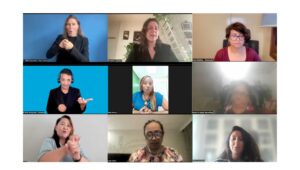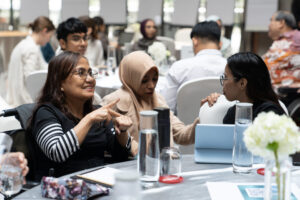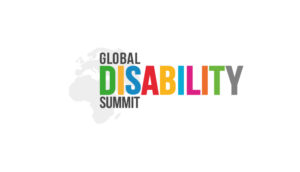Civil Society Forum – Global Disability Summit 2025, Berlin, Germany
We, Indigenous persons with disabilities, speak with one collective voice, rooted in the lands, territories, and breath of our ancestors. We come from many regions—Africa; the Arctic; Asia; Central and South America and the Caribbean; Eastern Europe, the Russian Federation, Central Asia and Transcaucasia; North America; and the Pacific—yet we carry a shared truth, a unified vision, and a collective aspiration. We are peoples who have endured colonialism, dispossession, and erasure. We continue to bear the weight of historic, systemic, and structural discrimination, yet we also carry knowledge, culture, healing, and resilience.
The Global Disability Summit is a critical moment—a convergence of nations, movements, and voices—where the world has the opportunity to choose justice, equity, and transformation. For Indigenous persons with disabilities, this is not a symbolic gesture. It is a vital occasion to be seen, to be heard, and to help shape a future where our rights, cultures, and lived experiences are meaningfully upheld—within the disability rights movement and beyond. For too long, we have been pushed to the margins of both Indigenous and disability rights spaces. We are not here to ask for inclusion; we are here to affirm our place. This Summit is a space where States, international partners, and global systems can finally recognize our leadership—if they are willing to listen, act, and share power. If the commitments made in Berlin are grounded in respect, carried out with integrity, and shaped by our voices, then this can be a turning point—a path to a world where Indigenous persons with disabilities live with dignity and rights fully realized.
Our lives are shaped by the deep interconnection between our identities as Indigenous peoples and as persons with disabilities. The colonial forces that removed us from our lands and silenced our languages also pathologized our bodies and minds, judged our value by imposed norms, and erased the meaning of disability within our cultures. Yet in many of our Nations, disability has never been viewed as a flaw—it has been seen as a gift, a role, a sacred part of the whole. We remember when people with different bodies or minds were recognized for their contributions—not excluded.
For centuries, Indigenous women and girls with disabilities have been rendered invisible, silenced, and denied their fundamental rights. CEDAW General Recommendation 39 affirms that their lived realities are shaped by poverty, structural violence, racism, ableism, and exclusion from decision-making. It is not enough to speak of equality in abstract terms: we must transform the systems that perpetuate inequality and recognize intersectionality as a principle guiding public policy.
Despite our strength, we remain too often invisible in systems that claim to serve us. In times of crisis, we are the most at risk and the least protected. We have seen emergency shelters that are inaccessible, information that excludes our languages and communication styles, and evacuation plans that ignore our presence. Our free, prior, and informed consent is too often dismissed. The climate crisis lays bare the enduring legacy of colonialism—especially when decisions are made without our voice. Yet we are not passive in the face of change—we are stewards of land, water, knowledge, and survival. We have always adapted and led. What we need is not charity—but space to lead.
International cooperation and development aid rarely reach us in meaningful ways. Programs arrive with fixed agendas and timelines, without our input or consent. Resources pass through many hands but never arrive in our communities. We know this truth: development without us is not development—it is displacement.
The Convention on Biological Diversity has begun to adopt a more inclusive lens, underscoring the need for accessibility in the use of natural resources, traditional knowledge, and protected areas. While persons with disabilities have been historically excluded from environmental decision-making, emerging efforts to include us in education and community-based programs must continue—and they must center us. True climate justice must include us in its vision and design.
We assert our right to self-determined development. This means defining our needs, guiding our futures, and drawing on our knowledge systems. True cooperation is rooted in relationship, dialogue, and mutual respect. When we are included from the start—not as an afterthought—the outcomes are stronger for all. Our right to participate in decisions that affect our lives is not just enshrined in international law—it is a core truth of our traditional governance systems. We face compounded barriers—not only from discrimination against Indigenous Peoples, but from systems that deny our autonomy as persons with disabilities.
Self-determination is not a request—it is a right. The United Nations Declaration on the Rights of Indigenous Peoples (UNDRIP) and the Convention on the Rights of Persons with Disabilities (CRPD) oblige States to guarantee our rights without discrimination. Respecting our self-determination includes honoring our forms of governance, protecting our languages and knowledge systems, and dismantling all forms of institutionalized colonialism.
Across our territories, our languages are disappearing—not by chance, but by design. For Indigenous persons with disabilities, this loss is even more deeply felt. Services are provided in languages we do not speak, and systems rarely reflect our ways of being. Deaf Indigenous persons are often denied education and healthcare because no one speaks their language or signs. People with psychosocial or intellectual disabilities are judged by foreign norms, not cared for by their communities. Yet we remember other ways—where healing is told through stories, education is rooted in land, and justice is practiced through relationship.
The mental health crises in our communities are not disconnected from the trauma of colonization. Forced removals, residential schools, cultural suppression, and systemic violence have left deep scars. Too many services ignore this history and deepen the harm. We need healing that is grounded in culture, land, and ceremony. Mental health support must restore connection—not enforce isolation.
We come to this Summit not only to expose what is broken—but to offer what we bring. We offer the wisdom of our Elders, the strength of our youth, the teachings of our ancestors, and the hope of future generations. We bring stories, solutions, and ceremony. We bring leadership.
Too often, we are consulted in name but excluded in practice. Our input arrives too late—if at all. Tokenism replaces inclusion. Extraction replaces relationship. Yet we have our own ways of making decisions, our own timelines, and our own systems. When we are empowered to lead, we create lasting change.
We do not seek to be integrated into systems that exclude us—we seek to transform them. Inclusion must mean structural change—across disability rights frameworks, development systems, and humanitarian responses. We are not data points or passive recipients. We are Peoples. We are sovereign. And we will not be left behind.
As Indigenous persons with disabilities, we are asserting our rights—to determine our lives, protect our lands, speak our languages, and live with dignity. We stand in the teachings passed down through generations, teachings that remind us that every person, every voice, every body, and every mind belongs.
We call upon the world to meet us in good faith—to uphold the promises of the CRPD and UNDRIP. To honor Free, Prior, and Informed Consent—not only in law, but in practice and spirit. To direct resources where they are needed—not through gatekeeping, but through trust and partnership.
We are many Nations, many languages, many stories—but we speak with one voice: We are not invisible. We are not broken. We are not burdens. Our stories have been unheard for too long. We are Indigenous persons with disabilities. We are custodians of nature. And we will rise—in our full strength, in solidarity, with or without permission.
We speak these truths not only to be heard, but to be acted upon.
Our peoples have always upheld the values of responsibility, reciprocity, and respect. We now call upon States, international agencies, donors, and all who hold power to respond in kind. The promises of UNDRIP are not symbolic—they are binding. They must be fulfilled in our lives, in our lands, and in our laws.
Indigenous Call to Action
We call for recognition of our right to self-determination (Article 3), including the freedom to define our political status, development pathways, and futures. This must be upheld in international cooperation and humanitarian efforts, where decisions are still too often made about us, not with us.
We call for our right to autonomy and self-government (Article 4), particularly in matters of health, education, disability supports, and emergency planning. Our systems are effective, grounded in generations of experience, and must be supported—not displaced.
We call for the protection of our cultural and spiritual traditions, knowledge systems, and languages (Articles 11, 12, 13, and 31), including through accessible formats that reach Deaf persons, and those with cognitive or communication disabilities. Inclusion requires that our languages, signs, and stories endure.
We assert our right to establish and control our education systems (Article 14), so our children can learn in ways that reflect who they are—not in systems that erase or pathologize them.
We reaffirm our right to participate in decision-making through our own institutions (Article 18), and demand Free, Prior, and Informed Consent (Article 19) in all decisions affecting our communities. We must be equals at the table, shaping the future.
We call for full recognition of our right to development on our own terms (Articles 20, 21, and 23). Resources and funding must reach Indigenous-led organizations of persons with disabilities directly—not through intermediaries.
We call for protection of our lands, territories, and resources (Articles 25, 26, and 29). These are not only the foundation of our identities—they are essential to our well-being as persons with disabilities. Development without consent violates our dignity, rights, and future.
We call for urgent action to address historical and ongoing violence (Articles 7 and 22), including institutionalization, forced sterilization, denial of services, and environmental destruction. These harms must be acknowledged, and justice must be pursued.
We call on States and international bodies to ensure effective remedies and redress (Articles 28 and 40) for violations committed in the name of progress, development, or public interest.
Finally, we echo the spirit of Article 43: the rights affirmed in UNDRIP are the minimum standards for the survival, dignity, and well-being of Indigenous Peoples. For Indigenous persons with disabilities—whose voices have often been excluded even within our own movements—these rights are essential. They must be realized in full.
This is a call for inclusion. A call for truth, justice, healing, and transformation. We carry these words as a flame passed down by our ancestors—and we light the way for generations to come.
Submitted by:
Indigenous Persons with Disabilities Global Network (IPWDGN)
Asia Pacific Indigenous Women and Girls with Disabilities Network (APIWDN)
National Indigenous Disabled Women Association Nepal (NIDWAN)
Latin America and Caribbean Network of Indigenous and Afro-descendant Women with Disabilities (Red de Mujeres Indígenas y Afrodescendientes con Discapacidad de ALC)
First Peoples Disability Network


